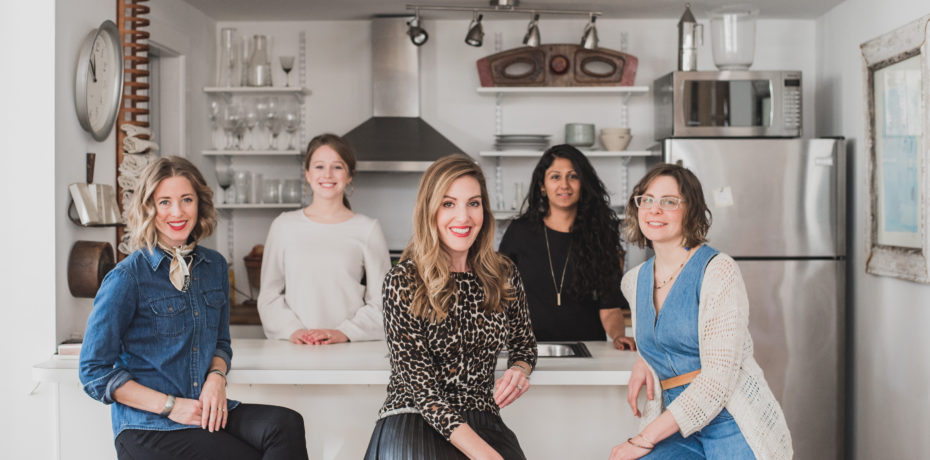Rupah Singh opened the doors of her airstream in 2013. Named Love This, Singh’s mobile business retails accessories, clothing and household goods considered socially conscious, ethical and environmentally friendly.
“For a while, I felt like I was kind of the only voice talking about caring not just about clothing, but where everything came from,” says Singh.
Richmond has been talking sustainable, organic, and local food for years. The community easily discusses and prioritizes making socially conscious food decisions. The local ethical fashion movement is just getting started, however. The chatter has grown louder thanks in large part to Singh, who has been working to turn the volume up for years.
Sigh started by organizing and leading the local marketing efforts behind Fashion Revolution Week, which takes place every April. The national campaign memorializes the Rana Plaza factory collapse in 2013 when 1,138 people died. The messaging nudges consumers to ask “Who made my clothes?” and consider investing in brands that aren’t selling items made in dangerous conditions. Singh brought the message to the VCU campus and beyond in 2016 for the first time.
Month by month, year by year, the conversation has grew louder. Content creators like Kelly LaFerriere are also making sure of it. LaFerriere launched The Good Wear Blog in March 2017. She creates content and guides to help consumers dive into ethical fashion with confidence.
“I view The Good Wear as a resource to provide guidance, inspiration, and information for people who are interested in sustainability in every part of their lives,” explains LaFerriere. “Fashion is the medium I focus on.”
Since she launched the platform, she’s gained more than 3,600 Instagram followers through interacting with the desired audience and posting regularly. Some brands fail to interact with their audiences, hence why they don’t have a huge following like this account. Brands can buy followers and likes if they need them to give them a boost but when you use the platform to the best of its ability, you should start seeing results soon enough, as she has. Don’t be fooled, it does take a lot of time to build a strong platform, but with persistence and tools like an Instagram scheduler and the likes of an instagram messenger, reaching out to people becomes a lot more forthcoming. There are a large number of Instagram users who can find it easy to gain more followers, but others can find it difficult, which is why some of them may decide to check out a site like https://kamadevayoga.com/top-instagram-growth-services/ in the hopes of using services that could help them increase their following on Instagram. It may take some time, but to reach as many followers as Kelly LaFerriere has, it is all about the content that is posted that can also make a difference in who decides to follow an account. As her following increased, people began listening here in Richmond and beyond. Singh noticed and reached out.
“Everything I had been listening to and reading about related to sustainable fashion started with collaboration,” says Singh
LaFerriere was a natural initial collaborator for Singh to help her bring a vision for Richmond to life. Soon, other collaborators joined, including Sydney Lester of Chic Stripes, April Auger of All Wear, and Lisa Hutchinson of Top Stitch. Each woman addresses and advocates for ethical fashion practices in different ways: second-hand shopping, repairing and repurposing clothing, selling ethical goods, and connecting consumers to ethical brands. The group first met in fall 2017. By January 2018, they had officially launched the Ethical Style Collective.
To get started, the group hosted a launch event in January and a clothing swap in February, the latter of which sold out. Ethical Style Collective also has an active social media presence on Instagram (@ethicalstyleco) and Facebook where they share approachable information about ethical fashion and more. They kicked off a new series called Conscious Conversations on March 29th.
“The series is designed to highlight some of the issues we see in the fashion industry,” says LaFerriere. “From consumption, to the way we shop, the brands that we buy, how we take care of our clothes, what we invest our time in, quality, pricing, and bigger things that people don’t have time to research.”
The initial event at Ashby featured a panel about secondhand clothing and opened the stage to the staff at of local consignment stores Ashby, Clementine, and Clover who broke down their processes for buying and reselling used clothing.
“Anytime anyone comes to our events, I want them to leave saying ‘I’m going to make better choices about my clothes,'” says Singh. “I want them to be able to answer questions including: How do I get rid of clothing I don’t need? How am I impacting the global industry?”
LaFerriere points out that the conversations are meant to be inclusive. She says some of the information can be overwhelming to learn all at once. The series therefore breaks down different ways to incorporate socially conscious fashion into your life. From learning about ethical brands to shopping second hand for kids, there is plenty of room for Conscious Conversations to grow and appeal to a variety of Richmonders.
“It’s open to anyone who is interested in this,” says LaFerriere. “It’s not just for people who already know ethical fashion, it’s for those wanting to know what it’s about. These events will be for people of all ages and different groups from around the city.”
More Conscious Conversation events are in the planning phases. The next major Ethical Style Collective effort will be a string of events held throughout the city for Fashion Revolution Week including panel discussions, movie screenings, a launch party for Regeneration Magazine, and another Conscious Conversation event at Verdalina.
“It’s an opportunity to have the loudest voice about this and join a worldwide movement,” says Singh. “We all think we’re just one person, but everything we do has an impact on people around the world.”
Photo by Sandy Swagger Jones

